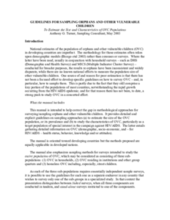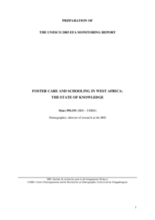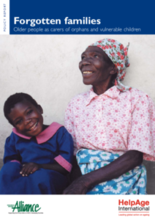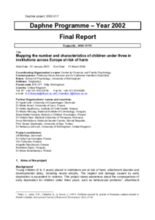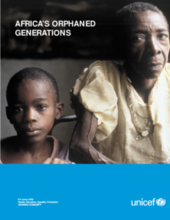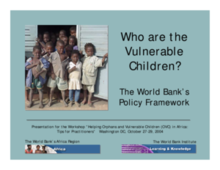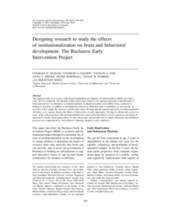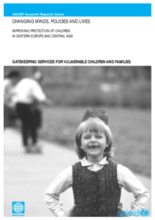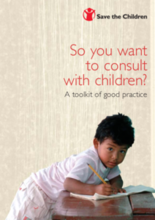Displaying 521 - 530 of 565
A manual which seeks to fill the gap in the methods of estimating the population of orphans and vulnerable children in developing countries. The manual includes thorough guidelines on sampling approaches.
Explores the relationship between fostering and education in West Africa. Identifies special need to focus on protecting and educating young girls.
This paper provides guidelines and tools for policy makers to evaluate the quality of child care initiatives
A brief policy report which highlights issues faced by older caregivers of orphans and vulnerable children in Africa. Outlines NGO responses, challenges and recommendations for programmatic support of older caregivers. Includes statistical data on ageing, HIV/AIDS and kinship care in Africa.
This 15-month project aimed to map the number and characteristics of children under three placed in European institutions for more than three months without a parent as this information was previously unknown.
Current statistics and projections of HIV prevalence and impact on children and families in Sub-Saharan Africa. Outlines a strategy for action which includes collaborative efforts on the part of governments and child-focused agencies to strengthen families, build community capacity and increase awareness.
Slide presentation focusing on the definition of orphans and vulnerable children. Includes a discussion of OVC, child vulnerability and the Millenium Development Goals.
An overview of the largest longitudinal investigation of institutionalized children less than 2 years old ever conducted.
Practical guidance, case examples, and tools to assess, monitor, and evaluate child protection services and facilitate reform away from institutionalization of children.
A toolkit of good practices for involving children in consultation and policy processes. Includes an extensive guide to additional resources.

